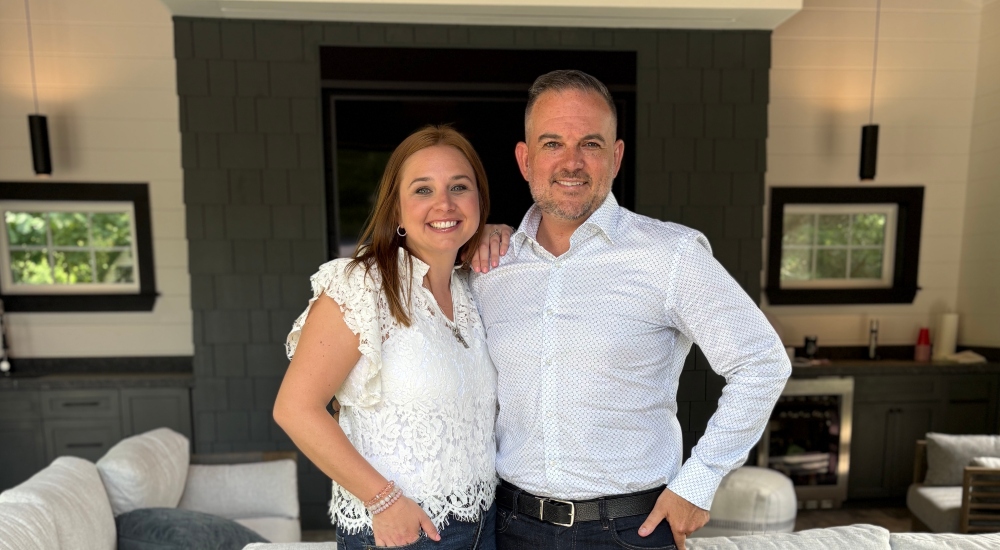Adam Zell began his career in an entirely different industry, and back then, running a high-end smart home company in his hometown Boston was not even remotely on his radar.
He started his professional career in IT and eventually managed the global IT support organization for a large tech company that expanded rapidly through international acquisitions.
As the scope and stress of that role grew—culminating in a request to relocate to corporate headquarters in California shortly after the birth of his son—Zell decided to make a change. He was burnt out and moving his young family across the country just was not in the cards.
“I wasn’t going [to the headquarters],” Zell said. “I didn’t want to do the work anymore because it got to be just so burdensome and overwhelming and stressful.”
So, he took a generous severance package while being a stay-at-home dad to his newborn son. For nearly a year, Zell lived off his severance and savings while his wife returned to her HR director role. Freed from the demands of managing global IT infrastructure, Zell took on full-time parenting duties, becoming the primary caregiver to the couple’s newborn during his first year.
He eventually went back to work, with a stint at a startup until a chance encounter built the foundation for what would become Boston Automations.
Zell was looking for speakers for a new home and knew that he wanted Klipsch speakers. He called the company, and eventually got Peter Dyroff, a manufacturer’s representative in the Boston area who now heads up Strateres.
“I call and talk to him, and we’re talking about speakers, and at some point, he says ‘I run the rep company, I’m not a speaker salesman, but it sounds like what you want to do with your life and your career is something that might work out well with us, if you’re interested,’” Zell recalls.
Dyroff then became Zell’s mentor and introduced him to the world of custom integration.
“That was the beginning of this,” Zell says.
New England Grit Powers Early Growth
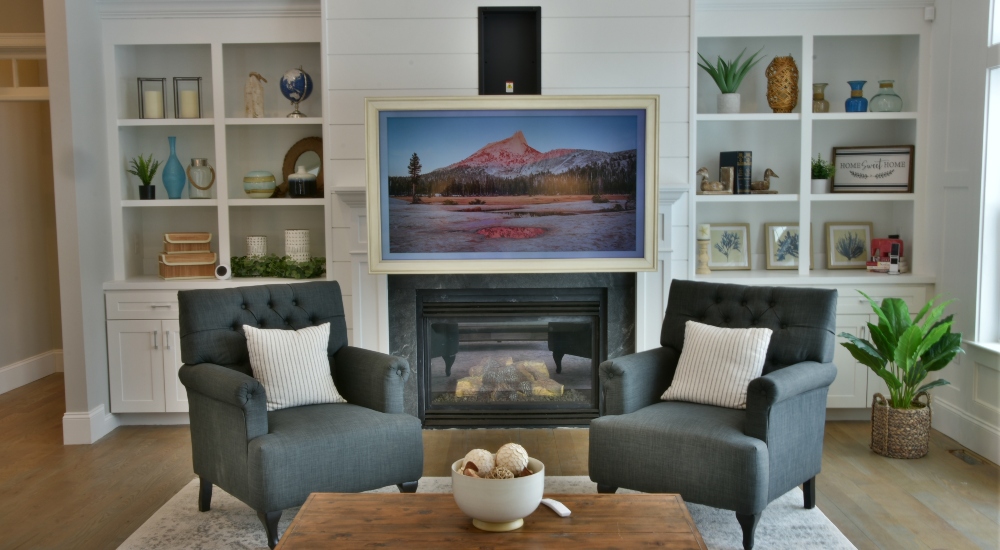
Boston Automations
Zell had no background in AV, construction, or business management. He had no background in running or building a company, and finding support as a newcomer with no industry connections was difficult.
Leaning on Dyroff—and with his newborn son still on his lap—Zell began building what would become Boston Automations from the ground up. He spent his nights researching products, building a website and cold-calling reps. But early on, no one was rolling out the red carpet.
“My biggest challenge in the formative years was being taken seriously by the ‘big guys’—the competitors and the big brands,” Zell said. “I had to prove myself over and over again.”
Access to premium lines was a constant struggle. Zell often found himself working twice as hard to win the trust of both clients and manufacturers.
“Many days, weeks, even months were spent wondering if I’d be buying sideways forever,” he says.
Dyroff, Zell’s mentor and founder of the Boston-area manufacturer’s representative firm Strateres, even admits that the industry can be a bit guarded when newcomers come along. However, Adam was different. He was honest and genuine.
“He talked about what he didn’t know, and talked about what he wanted to do,” Dyroff remembers. The two met for breakfast shortly after, and tt was there that Dyroff became sold on the Zell story.
“Everything about him tugs at my emotional strings,” Dyroff says. “Starting a new business, getting out of corporate America, having young kids… I was like, I gotta find a way to give this guy a break and try to help him.”
The mentorship started informally—Dyroff offered advice, connected him with key brands, and helped guide him through early challenges. Zell listened.
“He took it to heart. He learned by doing, but he listened,” Dyroff says. “He understood the value of advice from somebody that truly had his best interest at heart.”
Nearly seven years later, Boston Automations has grown from a one-man operation to one of New England’s most respected custom integration firms. What started as a career pivot has evolved into a full-fledged, family-run business that combines cutting-edge smart home technology with a deeply personal approach to service.
Now led by Adam and his wife Jessica—a finance and operations whiz who—Boston Automations boasts a portfolio of award-winning projects, a collaborative trade network, and a growing team specializing in lighting, audio, and automation for high-end residential spaces.
At first, the company was just Zell working from home, testing products on his own system and refining what kinds of solutions would resonate with homeowners. Zell quickly realized the business opportunity: integrators weren’t going deep enough into the home to deliver the kind of seamless, lifestyle-enhancing experience he envisioned.
The early model focused on building trust and appearing larger than reality—professional marketing materials, a polished website, and a commitment to responsiveness helped Zell overcome skepticism from clients unsure about working with a small firm.
“We built a really nice website, great marketing materials… and we really didn’t have any of those plans figured out yet,” he said, “but we made it work.”
In time, that perception became reality as referrals snowballed and the company began scaling. What really sent the company over the top and helped them gain recognition was a 92-home development that was a partnership with a local homebuilder to deliver enterprise-grade wireless networking and whole-home automation options. Each home was pre-wired to allow for scalable smart home upgrades.
Homebuyers were introduced to smart home possibilities during the sales process, aided by a model home showcasing integrated systems like multi-room AV, smart lighting and motorized window treatments.
According to Zell, the project was a success because Boston Automations was more responsive than the other trades and was essentially the project coordinator between the disparate trades.
The project became a proving ground—not just for the company’s integration skills, but for its ability to manage scale, coordinate with trades, and deliver builder-ready solutions under pressure.
It was also when the company mastered the art of looking bigger than they were, which Zell attributes to making use of complementary services from manufacturers such as lighting design, network heat mapping and audio design services.
“We were able to turn around impeccable, professional project designs in days rather than weeks, making us appear like we had a large team behind us,” Zell says. “While this was true, it was manufacturers, not employees helping fuel our growth.”
This helped Boston Automations earn the trust of builders and developers who needed reliability more than flash. That reputation for responsiveness and coordination became the firm’s calling card—unlocking referrals, repeat business, and opportunities to scale organically.
That project became the single largest smart home community in New England, which of course makes for excellent marketing. The three-year-old company now had that accolade under its belt.
That project led to a steady stream of referrals and an equally steady stream of industry awards and recognition, including winning a Lutron Excellence Award for collaborating with trade partners on an oceanfront home in Rhode Island.
Again, Boston Automations took on the role of trade coordinator, working with a builder, architect, lighting designer, interior designer, electrician, and HVAC company to complete the home in lockstep. The project was the company’s first to eclipse $1 million and included lighting, shading and AV.
“Collaboration is really what transforms a major project,” Zell says.
From Solo to Family Endeavor
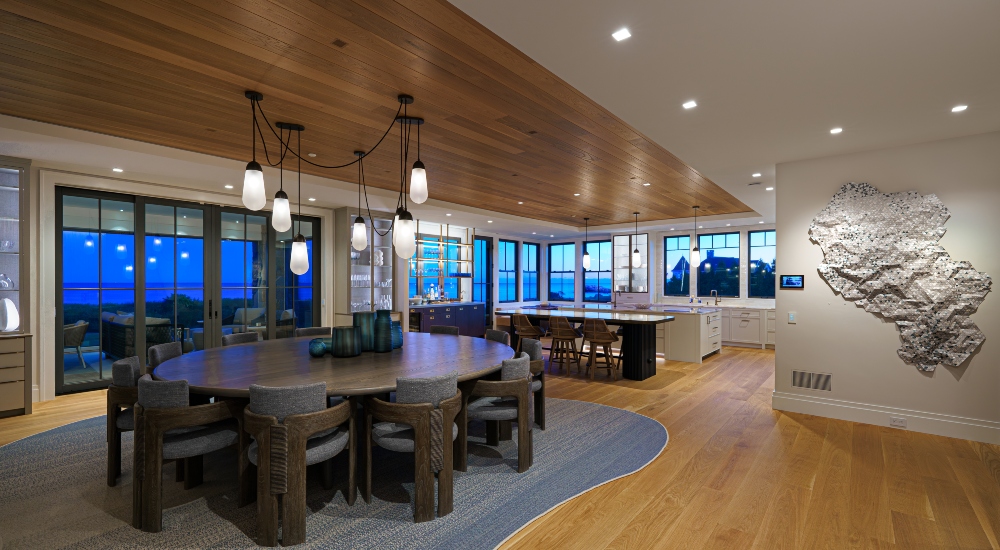
Boston Automations
For Boston Automations, growth wasn’t just a business goal—it became a family mission. When the company hit an inflection point, Adam’s wife Jessica brought her deep operational expertise to the table, helping turn a scrappy startup into a streamlined, scalable business built on family values and real-world experience.
According to Jessica, her husband dove head-first into this new career, and with more success came more work. He needed operations help, and as luck may have it, his spouse is a business operations expert, with experience in accounting, HR, payroll, and everything in between.
“All of that stuff is my jam,” Jessica says, recounting how she essentially is the back office of Boston Automations. “It’s geeky to say, but it’s fun.”
With an array of operational skills that includes payroll, accounting, HR, and everything in-between, Jessica helped Boston Automations focus on its core competencies, while preventing Adam from burning out from yet another job with a mountain of responsibilities.
The family has always been technically inclined, perhaps due to Adam’s earlier career as a global tech manager. Controlling home automation systems even comes natural to the couple’s two young children, who just assume that anyone can ask their home to close the shades and fire up Disney’s “Moana” on any screen in the home, Jessica says.
Today, the couple are the face of the company, frequently attending industry events and meeting with potential clients together. It’s rare to see Adam at a conference or trade show without his better half by his side.
Jessica’s skill set helped Boston Automations navigate many of the administrative challenges that stall growth for other integrators. She didn’t just keep the business afloat—she built the engine behind the scenes so Boston Automations could grow aggressively without collapsing under operational strain.
That level of family-oriented support is evident in their in-home showroom, an outdoor pavilion, living room, multipurpose room and home theater all-in-one. According to Jessica, the space is perfect for Zell family gatherings, Super Bowls, movie nights, and showing prospective clients what is possible in their own home.
According to Jessica, it’s important and valuable for clients—often families not unlike her own—to see how another family adopts and uses the technology.
“We test everything here,” says of the family’s home in Easton, Mass. “There are some things we used and didn’t like, so we wouldn’t refer this to another family.”
Commanding a Niche in New England-Style Retrofits
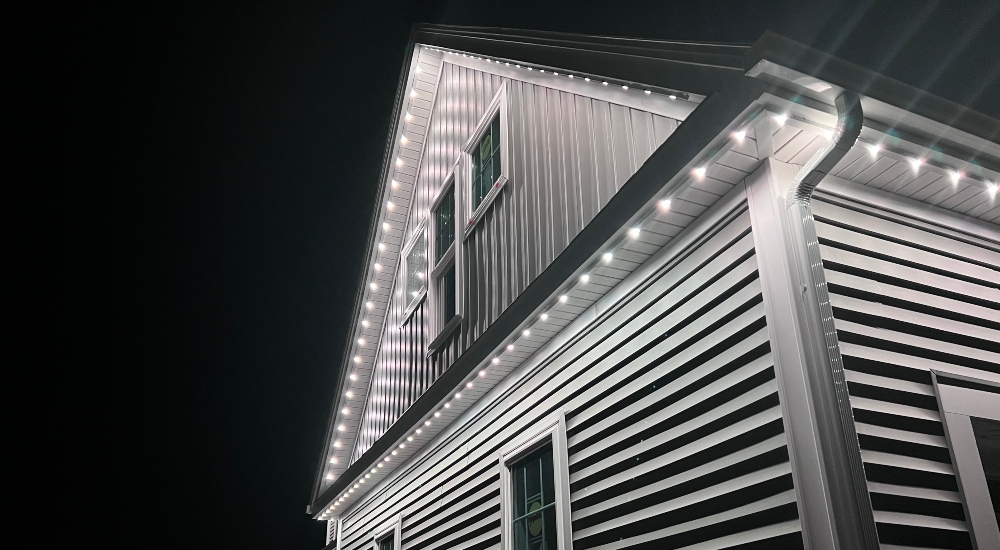
Boston Automations
Standing out in a luxury home industry in New England is sometimes difficult. Homes in New England are very traditional colonial homes, matching the quaint, elegant architecture that has defined the region since the country’s founding.
Yes, the homes that Boston Automations works in are large and beautiful in their own way, but they aren’t the flashy homes found in Southern California or Florida that have come to define this industry. In fact, some projects even take place in homes that were built two centuries ago.
That emphasis on blending technology into traditionally styled homes and renovating historic homes with unseen technology is a defining characteristic of Boston Automations. Whether it’s concealing a soundbar inside a historic mantle or installing custom lighting in a brownstone, the company prioritizes invisibility—making sure tech enhances the space without calling attention to itself.
“That’s the whole New England vibe. It’s not being flashy—it’s old school and classier.” Adam says.
In addition to the Lutron award, the company was also a recipient of a Sonance/James award in the Designed to Disappear category, a testament to the company’s ability to seamlessly install technology in beautiful New England homes. According to the Zells, securing those two awards in the same calendar year is an industry first.
The company continues to rack up accolades and recognition, with Adam Zell recently being named to the Sonos dealer advisory board and chair of buying group Azione Unlimited’s lighting committee.
That means in the last three years alone, this small, young, dare-we-say underdog company from the scrappy Boston area has either won awards or been named to key appointments to four of the most important organizations serving this market.
“The growth came from persistence,” Zell says, recalling how he refused to leave the builder of the 92-home development alone until he heard him out and let him talk to homeowners.
Giving Back to Smaller Startups
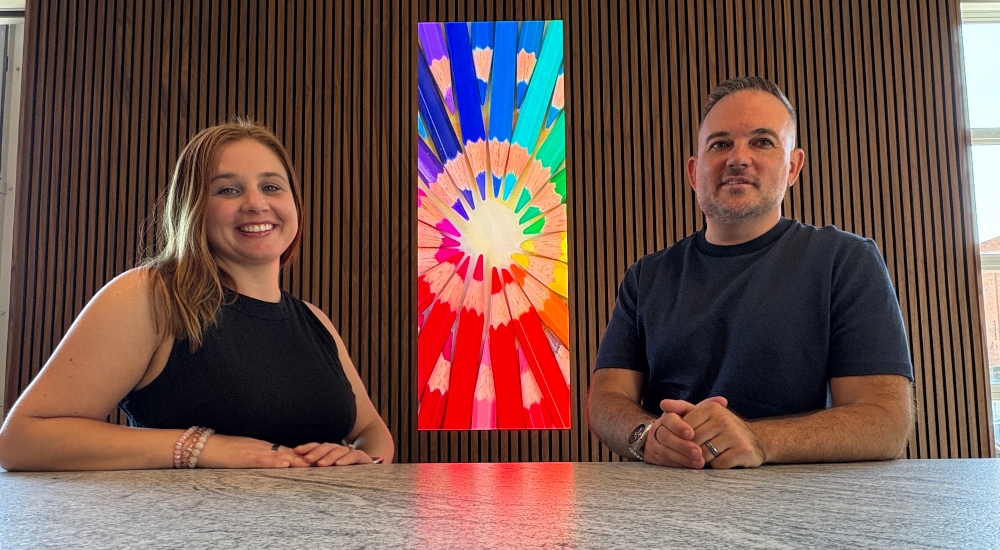
Zachary Comeau
While Boston Automations appears more mature and bigger than they may be—partly due to effective marketing and an aggressive video strategy—they are very aware of the growing pains that plague young integration firms face in this niche and competitive industry. Zell now leads a Slack group for small integrators where no questions are off limits. The idea is to create a safe space for integrators to air their concerns, fears, failures, wins, success, and everything in between.
In this Slack group, business owners aren’t afraid to ask questions, and they usually aren’t questions Zell hasn’t had himself. This is unique in an industry full of knowledge and experienced professionals that are sometimes seen as elitist.
“We don’t care what people think. If I have a question, I’ll ask it,” Zell says.
That sense of humility and willingness to learn from more experienced peers is something that Dyroff remembers. In fact, it’s one of Zell’s defining qualities.
“He sees the value of getting more information and being better at his craft,” Dyroff says. “That’s not normal anymore.”
Questions are immediately answered in the chat, because everybody is facing the same unique set of challenges since no company in that group of 20 owners has more than 10 employees. According to Zell, knowledge-sharing and mentorship are essential to the industry’s future.
“I leaned on so many other integrators to get big,” Zell says. “I had no shame in asking for help, because in five years no one remembers how small you were.”
Shaping the Future of the Industry
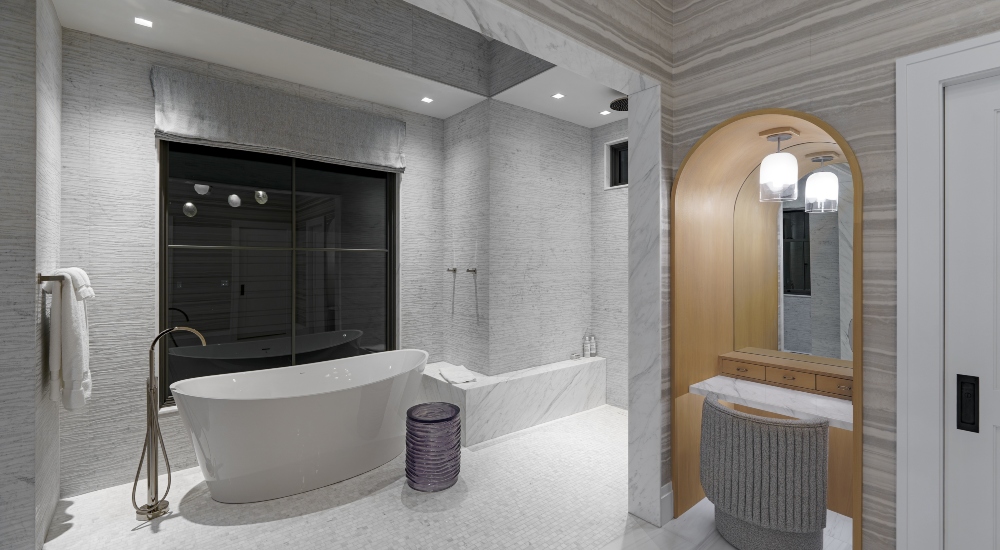
Boston Automations
Looking ahead, Boston Automations is proactively adapting to shifting industry demands. As interest in whole-home control systems plateaus and clients seek simpler, more reliable solutions, the company is pivoting toward lighting, shading, power, and energy management as key growth areas.
According to Zell, around a quarter of the company’s business is now lighting fixtures and controls.
“Every house will have lights and breakers—not every house will have hidden speakers or control systems,” Zell says. “That’s why we’re shifting to lighting and power.”
That focus on lighting and power has culminated in the creation of enerG, a new company that Zell says is designed to serve as the single source of expertise for residential power systems, lighting fixtures and control solutions.
The new company aims to alleviate the burden of complex code requirements by helping builders, electricians and architects while partnering with building inspectors to stay ahead of compliance while optimizing performance and cost.
According to Zell, enerG delivers fully engineered lighting and power solutions that are efficient, scalable, and code ready. Accredited training programs—developed in collaboration with top manufacturers—equip trade professionals with the knowledge to make informed, compliant decisions.
By integrating design, procurement, and long-term support, enerG aims to simplify the process of building energy-efficient homes and reduces risk at every stage, Zell says.
Meanwhile, client expectations continue to trend toward ease and reliability, with some even being hesitant to invest in control systems. In fact, some homeowners have even asked for simple systems that can be controlled by a handful of apps, Zell says.
He noted that the shift is especially noticeable among clients with vacation homes, who are only there a handful of times a year and just want everything to work as planned when they walk in the door.
Despite the changes and challenges, the Zells remain focused on what made their company successful in the first place—attention to detail, a commitment to their clients, and a willingness to evolve. With new business models in motion and a rising profile in the industry, Boston Automations isn’t just keeping up with the smart home market, it’s helping to define where it’s headed next.
